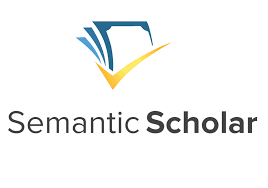The Language That Rules the World: What’s Behind English’s Global Power?
DOI:
https://doi.org/10.69760/aghel.025002122Keywords:
English as a global language, Linguistic imperialism, Multilingualism and equity, Language and globalizationAbstract
English has attained unparalleled global prominence, functioning as the primary medium for international communication in diplomacy, education, science, and digital platforms. This article explores the historical, political, economic, and technological forces that have contributed to the global dominance of English, beginning with British colonial expansion and extending through American geopolitical influence and the rise of global digital culture. While English offers undeniable advantages in terms of access to knowledge and international mobility, its spread has also reinforced linguistic hierarchies, marginalized indigenous and minority languages, and raised concerns about linguistic imperialism. Drawing on perspectives from sociolinguistics, language policy, and digital communication, the article interrogates the tension between English as a tool of global empowerment and as a symbol of cultural and ideological dominance. It concludes by arguing for a more balanced linguistic environment in which multilingualism and linguistic justice are prioritized alongside global communication. The article offers insights relevant to educators, policymakers, and scholars seeking to understand and navigate the complex implications of English’s global role.
References
Alaviyya, N., & Alisoy, H. (2023). Anaphora in text: Echoing words, amplifying messages. Experimental Physics, 106.
Alisoy, H. (2023). Enhancing Understanding of English Phrasal Verbs in First-Year ELT Students Through Cognitive-Linguistic Methods.
Alisoy, H. (2024). Overcoming Common Challenges: Addressing Inadequate Writing Skills in ESL Students at Nakhchivan State University. ECONOMIC SCIENCES, 46.
Alisoy, H. (2024). The Role of Teacher Feedback in Enhancing ESL Learners’ Writing Proficiency . Global Spectrum of Research and Humanities , 1(2), 65-71. https://doi.org/10.69760/gsrh.01022024007
Al-Jarf, R. (2022). The impact of English as a global language on language teaching and learning. International Journal of Language and Linguistics, 12(2), 1-10.
Angouri, J., & Miglbauer, M. (2022). English as a lingua franca in multilingual workplaces. Journal of Multilingual and Multicultural Development, 43(1), 1-15.
Ashrafova, I. (2024). Teaching English to Economy and Finance Majors at Nakhchivan State University.
Babazade, Y. (2024). Proverbs in Pedagogy: Their Role in Language Teaching and Cultural Transmission. Global Spectrum of Research and Humanities, 1(1), 69-82.
Berdimurotovna, N. (2020). English as a global lingua franca: Challenges and opportunities. International Journal of Language and Linguistics, 10(3), 1-12.
Catala, A., et al. (2022). The role of English in digital communication: A global perspective. Journal of Language and Social Psychology, 41(1), 1-18.
Crystal, D. (2020). English as a global language (3rd ed.). Cambridge University Press.
Davis, K. A., & Phyak, P. (2017). Linguistic diversity and language policy in the age of globalization. Language Policy, 16(2), 147-164.
Du, X. (2020). The promotion of English language instruction by the British Council. Journal of Language and Linguistics, 19(3), 1-15.
Flores, N., & Rosa, J. (2015). Undoing appropriateness: Raciolinguistic ideologies and language diversity in education. Harvard Educational Review, 85(2), 149-171.
Guilherme, M. (2020). English as a global language: A critical perspective. Language and Intercultural Communication, 20(1), 1-15.
Hagve, T. (2020). The dominance of English in academic publishing. Journal of Scholarly Publishing, 51(2), 1-18.
Ibrahim, A., et al. (2019). English language learning in the era of globalization. International Journal of Language and Linguistics, 9(2), 1-12.
Jenkins, J. (2019). English as a lingua franca: Attitudes and identity. Journal of Language and Social Psychology, 38(1), 1-18.
Lai, P. C. (2021). Linguistic imperialism and language policy in post-colonial contexts. Language Policy, 20(2), 147-164.
Phillipson, R. (2020). Linguistic imperialism and the English language. Language and Intercultural Communication, 20(2), 1-15.
Sadiqzade, Z. (2025). Strengthening Language Skills Through Active Classroom Interaction. Global Spectrum of Research and Humanities , 2(1), 28-33. https://doi.org/10.69760/gsrh.01012025003
Sadiqzade, Z., & Alisoy, H. (2025). Cybersecurity and Online Education – Risks and Solutions. Luminis Applied Science and Engineering, 2(1), 4-12. https://doi.org/10.69760/lumin.20250001001
Wang, X., & Hatoss, A. (2022). The impact of English language dominance on local languages. Journal of Multilingual and Multicultural Development, 43(3), 1-18.
Downloads
Published
Issue
Section
License
Copyright (c) 2025 Acta Globalis Humanitatis et Linguarum

This work is licensed under a Creative Commons Attribution-NonCommercial 4.0 International License.







